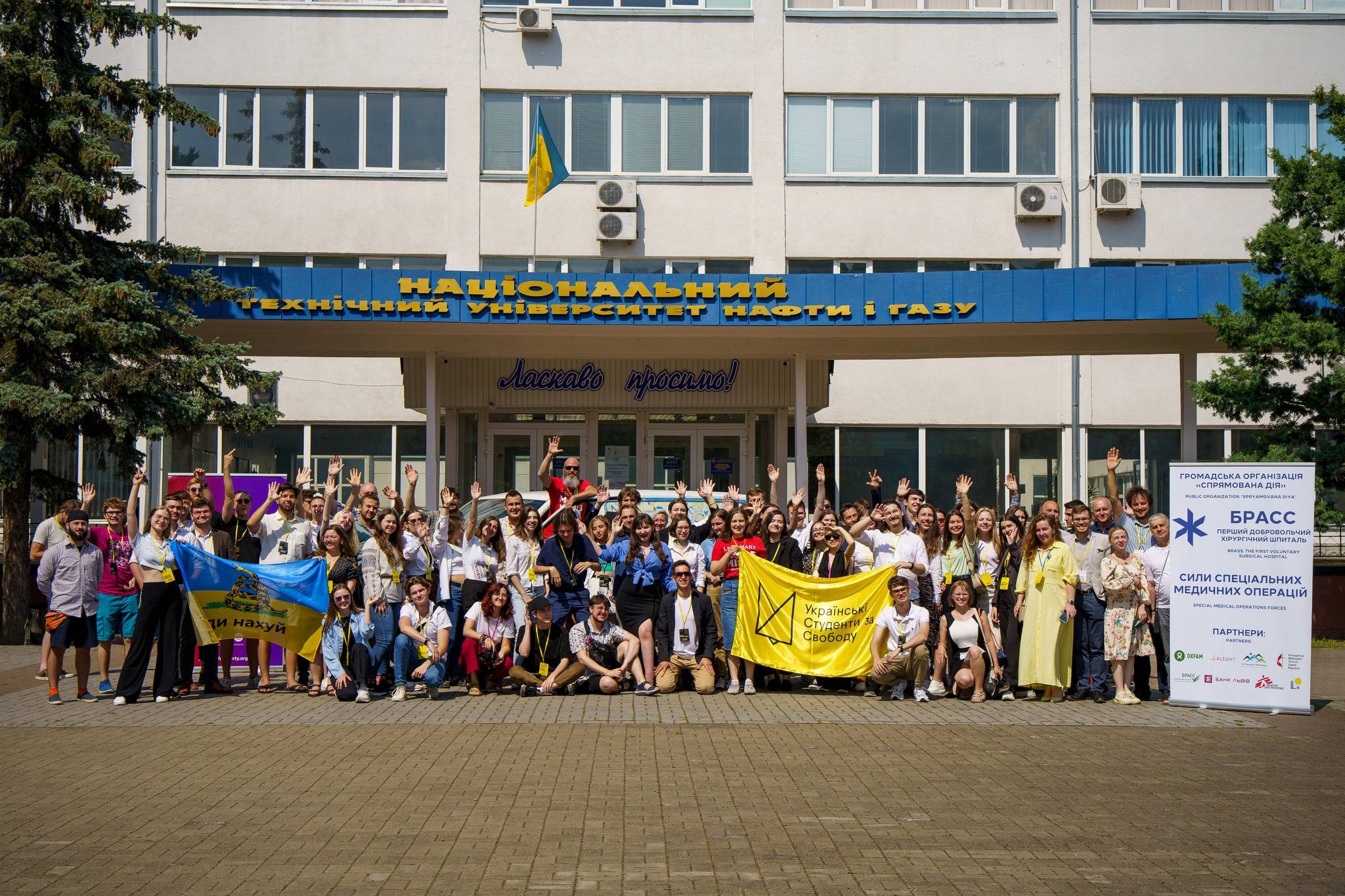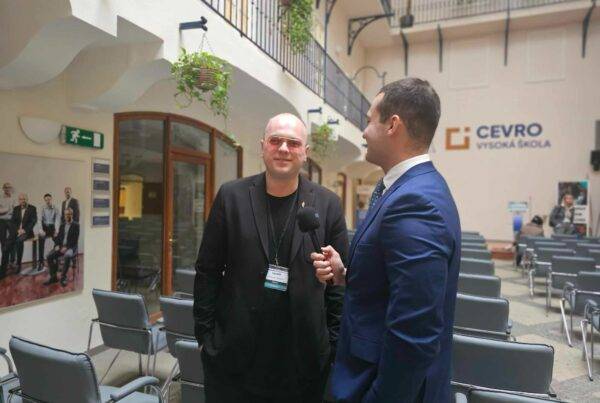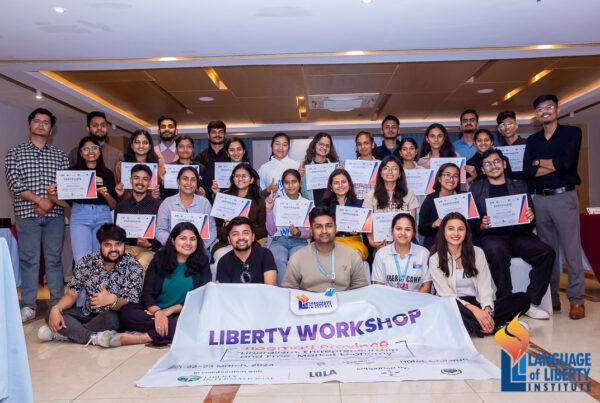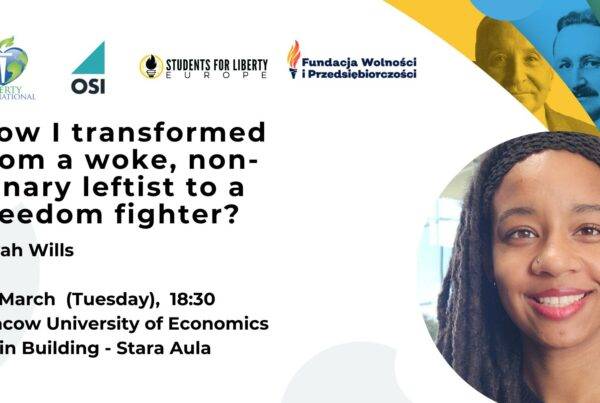
Since the beginning of the full-scale Russian invasion of Ukraine, Wit Samek of the Czech Republic has been delivering humanitarian aid in his yellow-and-blue painted truck named after Ludwig von Mises. A driving force for freedom, he inspired our friends from Students for Liberty to organize a conference where classical liberals from all accross Europe could talk about what comes next for Ukraine, and, most importantly, to organize it on Ukrainian soil.
The Ukrainian Rennaissance conference took place in Ivano-Frankivsk 22-23 July, and joined together students and teachers from Ukraine and Central Europe. We could choose from many panels and talks, each addressing a crucial issue related to the country’s development. How to heal from war trauma? How to re-integrate occupied lands? More importantly, how to secure trust between Ukraine and its Western partners? Natalia Melnyk in her brilliant lecture pointed out corrpution stems from over-regulation and relative poverty. Martin Panek talked about voucher privatization. The panel discussions covered the problem of Ukrainian integration into EU structures, patriotism and nationalism in modern contexts – and how to ensure that Ukraine will rise from the ashes as an economically and, what’s most important, spiritually free country.
The second day lifted up our spirits by showing historical examples of students changing the world – Kevin Flanagan handed out white roses in honor of Sophie Scholl, and Adil Abduramanov gave us a detailed recollection of the Revolution on Granite in 1990, when a student strike effectively became a nail in the Soviet Union’s coffin. Looking at the future challenges, the deputy to the Ukrainian Minister of Education, Mikhailo Vinnitsky, gave an inspiring lecture on academic culture, and dissected the perspectives of Ukrainian scientists securing big research grants. And lastly, Wit Samek himself took the stage, talking about his wonderful Ludwig von Mises truck and all his friends from important millitary units that were helped by the deliveries.
The late night discussions were sadly disrupted by curfew, and a long display of photos of the fallen runs through the main boulevard of Ivano-Frankivsk. Still, the food and drinks were top-notch, the spirits flew high, and the beautiful Galician architecture basked in the summer sun. Plus, visiting Lviv on the way – and seeing how it slowly turns into little Vienna – was a great addition to the conference.



